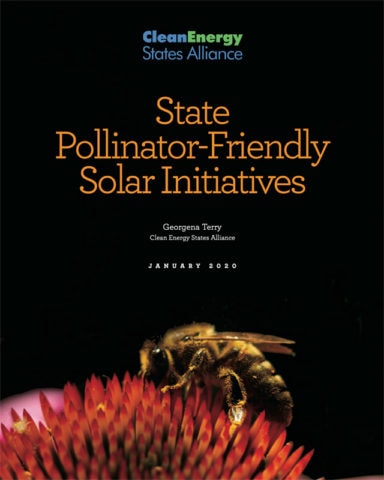State Pollinator-Friendly Solar Initiatives
Georgena Terry | CESA
Pollinators play a critical role in the production of food and seeds. Approximately one quarter of agricultural production in the United States depends upon pollinators, predominately bees. Since 2006, bee tracking has recorded declines of 30 percent annually. Numerous species of native bees may already be extinct or at risk of extinction. Loss of habitat is one reason the number of pollinators has decreased.
Many states have incentives or other programs designed to promote the deployment of solar photovoltaics (PV) to meet climate or clean energy goals. But where fields are cleared for large solar PV projects, it can be at the expense of pollinators, which depend on vegetation for habitat and food. Solar and pollinators, however, need not be at odds.
Seven states – Illinois, Maryland, Michigan, Minnesota, New York, South Carolina, and Vermont – have enacted legislation to promote pollinator-friendly solar development. A new white paper by the Clean Energy States Alliance (CESA) provides an overview of these state efforts and offers suggestions for what other states can do to promote solar while also creating or preserving healthy habitats for pollinators.

